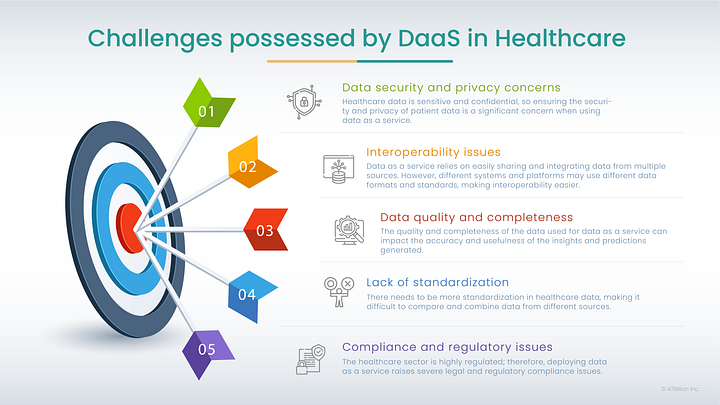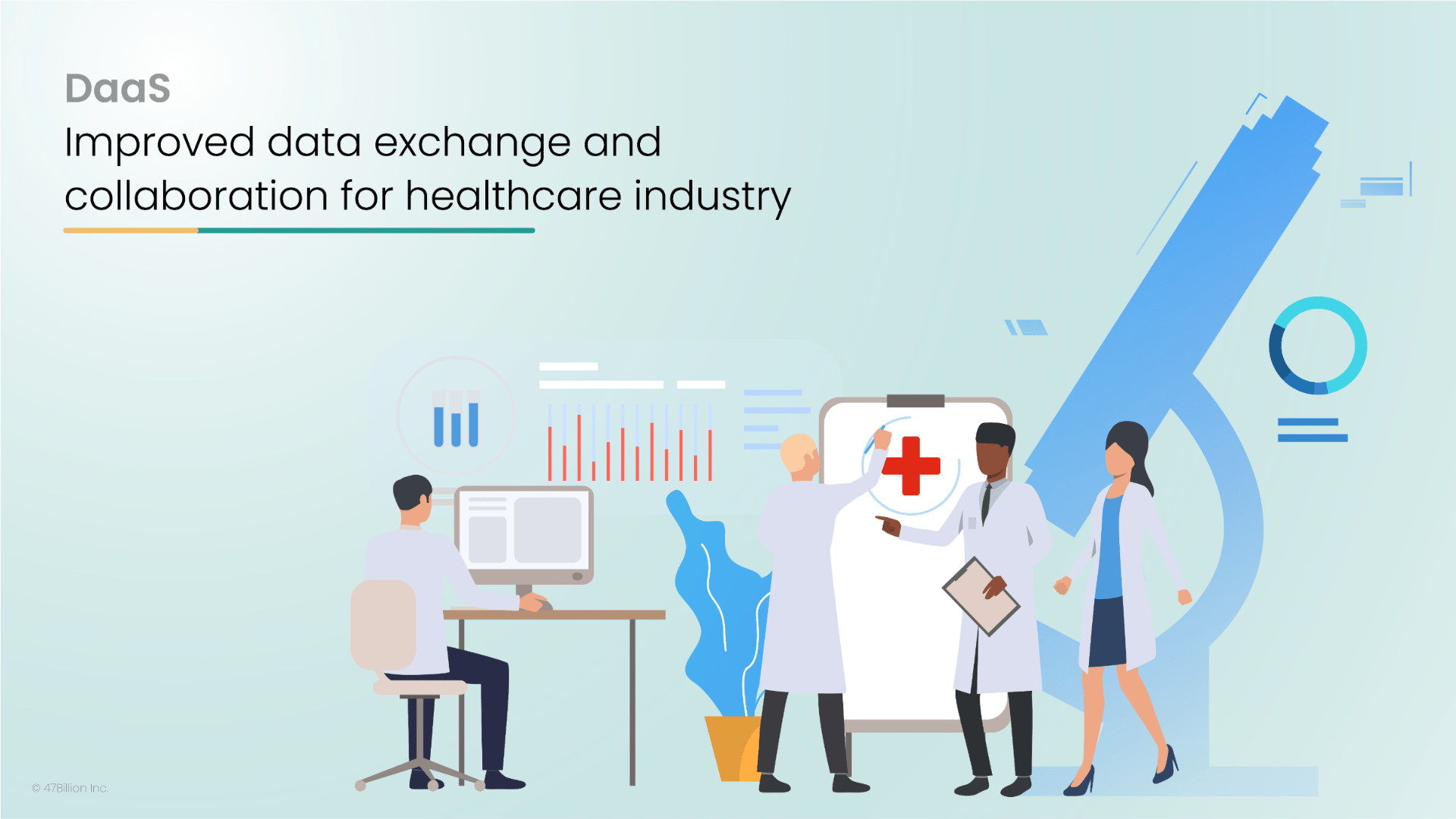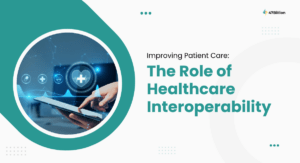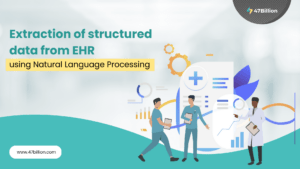Data as a Service (DaaS) systems store, process, integrate, or analyze mission-critical enterprise data using cloud deployments’ adaptability and limitless resources.
Like software as a service (SaaS) and platform as a service (PaaS), DaaS provides business customers with application capabilities without local installation or an app development environment. DaaS solution liberates data from the restrictions of the data center.
DaaS enables cloud-based data integration, storage, processing, and analytics operations. This platform also serves as a conduit for data businesses that require but need more storage or computing power to host themselves.
Data-as-a-Service (DaaS) offers various options to match your unique needs. Depending on your company’s needs, data can be sourced, hosted, standardized, and accessible. You can swiftly scale and move data to meet changing needs because it is built on open-source, broad data technology standards.
Healthcare and Data Science
Healthcare Analytics helps acquire valuable information that serves in the following manner.
- Provides better-quality healthcare to patients with the correct data collection procedures.
- Empowers healthcare providers and payers with factual data and precise analysis.
- Anticipates diseases early and remotely with machine learning.
- It helps doctors develop therapies and treatments with mobile applications and intelligent gadgets.
- Gathers data regarding heartbeat rates, blood pressure, sugar levels, and other metrics.
What do you understand by Data as a Service in Healthcare Industry?
Delivering healthcare-related data and analytics through the internet or another network is called “data as a service” (DaaS) in the healthcare industry. Large volumes of data can now be accessed, shared, and analyzed by healthcare providers without the need for costly internal data management and analytics capabilities.
Healthcare providers can improve patient outcomes and cut costs by using DaaS to acquire insights and make more educated decisions regarding patient care and treatment. As more and more data is generated through electronic health records (EHRs), wearables, and other connected devices, DaaS is growing in popularity in the healthcare sector. Additionally, it enables improved data exchange and collaboration between researchers, insurers, healthcare providers, and other stakeholders.
As the volume of data produced by electronic health records, wearables, and other sources continues to increase, data analytics and services (DaaS) usage in the healthcare sector is becoming more widespread. By offering insights from vast and complicated data sets, DaaS can assist healthcare businesses in making better decisions, enhancing patient outcomes, and lowering costs. A few instances demonstrate DaaS in healthcare:
- Predictive analytics: It employs data to predict upcoming occurrences or patterns, such as clinical results or disease development.
- Population health management: It uses data to identify and target high-risk patient populations and to track and improve the overall health of a population.
- Clinical decision support: It uses data to provide real-time guidance to healthcare providers during patient encounters.
However, the healthcare industry still needs to work on fully utilizing DaaS, as it provides the following favorable benefits:
- Improved data access and sharing
- Increased efficiency
- Better decision-making
- Reduced costs
- Improved patient outcomes
Challenges possessed by DaaS in Healthcare

Considering the pain points of the healthcare industry, Data as a Service can present several challenges, including:
- Data security and privacy concerns: Healthcare data is sensitive and confidential, so ensuring the security and privacy of patient data is a significant concern when using data as a service.
- Interoperability issues: Data as a service relies on easily sharing and integrating data from multiple sources. However, different systems and platforms may use different data formats and standards, making interoperability easier.
- Data quality and completeness: The quality and completeness of the data used for data as a service can impact the accuracy and usefulness of the insights and predictions generated.
- Lack of standardization: There needs to be more standardization in healthcare data, making it difficult to compare and combine data from different sources.
- Compliance and regulatory issues: The healthcare sector is highly regulated; therefore, deploying data as a service raises severe legal and regulatory compliance issues.
Trending DaaS in 2023!
Data as a Service (DaaS) is growing in popularity in the healthcare sector and plays a vital role in delivering insightful information, enhancing patient care and outcomes, and lowering costs. The following trends in DaaS are those most likely to persist or manifest in 2023:
- Making predictions from vast volumes of healthcare data using machine learning and artificial intelligence (AI).
- Greater emphasis on patient data privacy and security, as more sensitive health information is collected and shared digitally.
- Increased reliance on real-world information (RWE) to guide clinical practice, regulatory decisions, and medication development.
- The growth of telemedicine and remote monitoring produces large volumes of data, which can be studied to enhance care and lower costs.
- Growing adoption of blockchain technology for interoperability and safe data sharing amongst various healthcare systems.
Final Takeaway
Data as a Service (DaaS) has the potential to fundamentally alter how healthcare providers share, access, and analyze data. DaaS can assist healthcare practitioners in making better patient care and treatment decisions by utilizing the power of the cloud and cutting-edge analytics tools, improving patient outcomes and lowering costs. Additionally, DaaS enables improved data exchange and collaboration between academics, insurers, healthcare providers, and other stakeholders.
DaaS has its challenges, though, including issues with interoperability, data quality and completeness, lack of standards, compliance, and regulatory concerns. As a result, when using DaaS, healthcare companies must carefully analyze these issues and implement suitable security and compliance safeguards. As technology and legislation advance, DaaS is projected to become a crucial tool for healthcare practitioners to enhance patient care and outcomes. 47Billion offers Data as a Service focused on Healthcare Industry to meet all your expectations.




